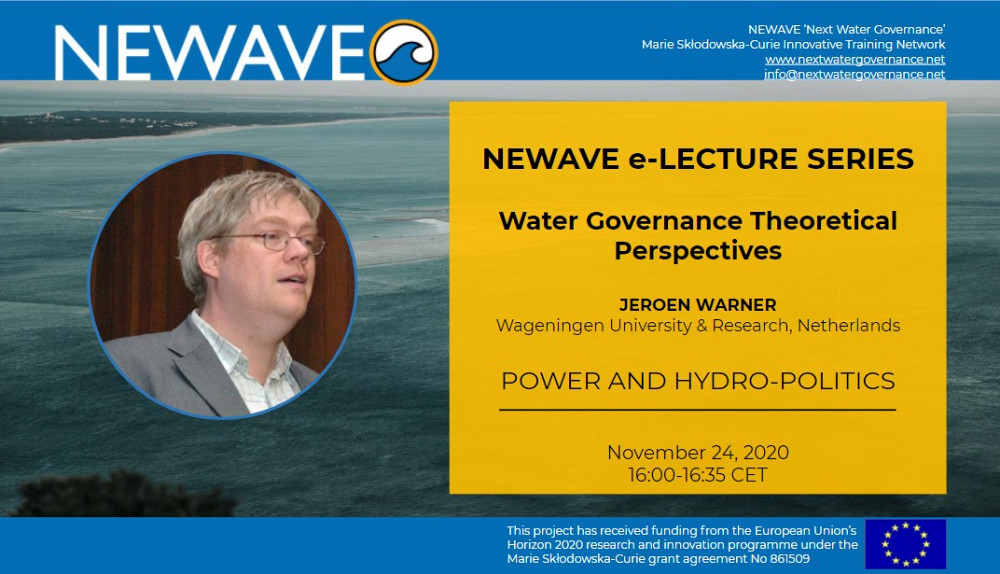NEWAVE e-Lecture Series: Power and Hydro-Politics| Prof. Jeroen Warner
Power and Hydro-Politics
The presentation seeks to remedy the 'power-blindness' of much water governance and diplomacy literature, arguing that water is not necessarily contested, but when it is subject to power, that is not necessarily negative. It discusses some ways of categorising and operationalising power in understanding water conflict and cooperation.
References:
Warner, J., & de Man, R. (2020). Powering hydrodiplomacy: How a broader power palette can deepen our understanding of water conflict dynamics. Environmental Science & Policy, 114, 283-294.
Carstensen, M. B., & Schmidt, V. A. (2016). Power through, over and in ideas: conceptualizing ideational power in discursive institutionalism. Journal of European public policy, 23(3), 318-337.
Clement, F. (2013). For critical social-ecological system studies: integrating power and discourses to move beyond the right institutional fit. Environmental Conservation, 40(1), 1-4.
Warner, J. & Wegerich, K. (2010). Is water political? Towards international water relations. In: K. Wegerich & J. Warner (Eds.): The politics of water: a survey. London Routledge.
Prof. Jeroen Warner
Dr. Jeroen Warner is an Associate Professor of Crisis and Disaster Studies, Sociology of Development, and Change Group at Wageningen University. He took his MSc in International Relations from the University of Amsterdam and his Ph.D. in Disaster Studies from Wageningen University. Dr. Warner teaches, trains, and publishes on domestic and transboundary water conflict and cooperation, participatory resource management, and governance issues. His main research interests in the disaster studies domain are disaster construction, disaster politics, social resilience, and culture, especially in cities. He has long experience of working in Bangladesh and Brazil.
About the e-Lecture Series:
This online training module has the objective to engage the NEWAVESRs and the audience in different water governance perspectives. All lectures are open to the public upon registration.
Please register here
A participation certificate can be requested if attending at least 80% of the online public talks.
*All times are in CET (UTC+1)
We would love to know what you think! Please leave a comment below and engage in our online discussion group.




